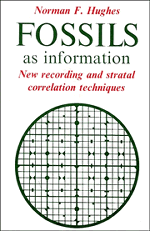Book contents
16 - Main plan re-stated
Published online by Cambridge University Press: 02 February 2010
Summary
Purpose. The principal purpose throughout this volume has been to promote full appreciation and discussion of the many problems raised by the pursuit of traditional methods of study of paleontology and of stratigraphy. In particular I have tried to assess the severely qualified success so far of these methods in achieving greater resolution from application of more and more of the additional information constantly becoming available from advances in instrumentation and from better generally integrated understanding.
Although workable solutions are offered to all the problems so far recognised, their immediate acceptance is a less urgent matter than agreement on the analysis of the difficulties.
Esssentials. The main difficulties with present methods can be expressed in terms of four needs:
(a) Equal treatment of all observational records.
(b) Accurate expression of comparison of new material with existing records, allowing for continuing advances of knowledge.
(c) Production of correlation statements designed for continuous refinement with advancing knowledge.
(d) Arrangements for truly phylogenetic universal classifications flexible enough to absorb new information.
These points will be summarised separately below in the next four numbered sections. All other remaining points, including the tightening up of definitions of taxa and the provision of adequate but not excessive nomenclature, are considered as logical adjustments to the four essentials.
Equal treatment of all records. The reason for the longstanding toleration of inadequate paleontologic records is almost certainly historical. In the early days of exploration geology, it was manifestly quicker and more intelligible to label a new occurrence as attributable to an existing taxon if that was at all possible.
- Type
- Chapter
- Information
- Fossils as InformationNew Recording and Stratal Correlation Techniques, pp. 108 - 115Publisher: Cambridge University PressPrint publication year: 1989



